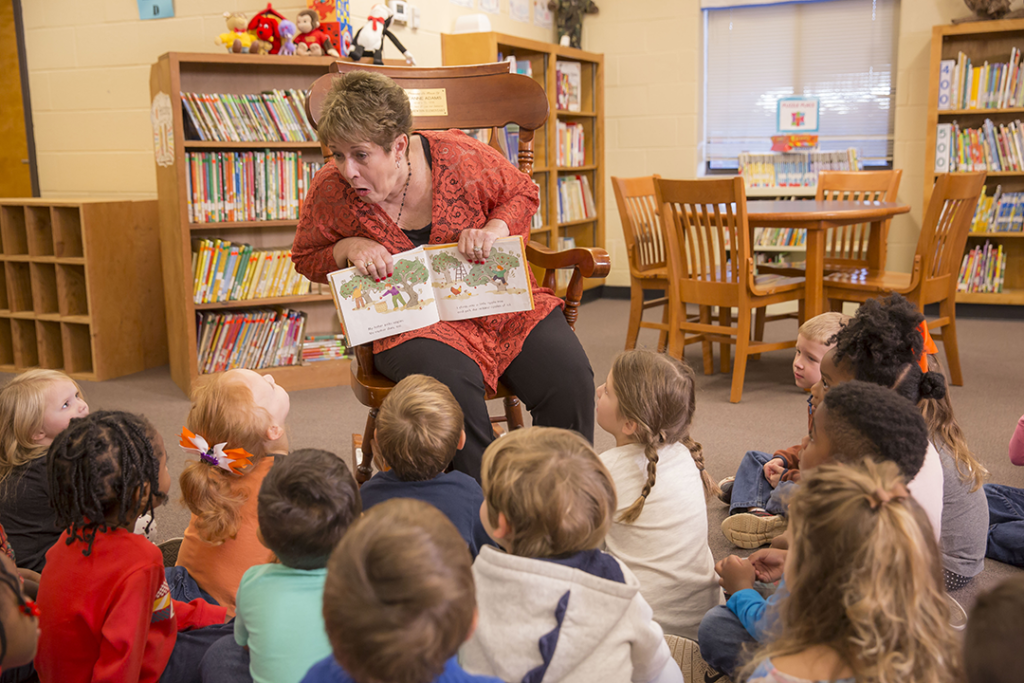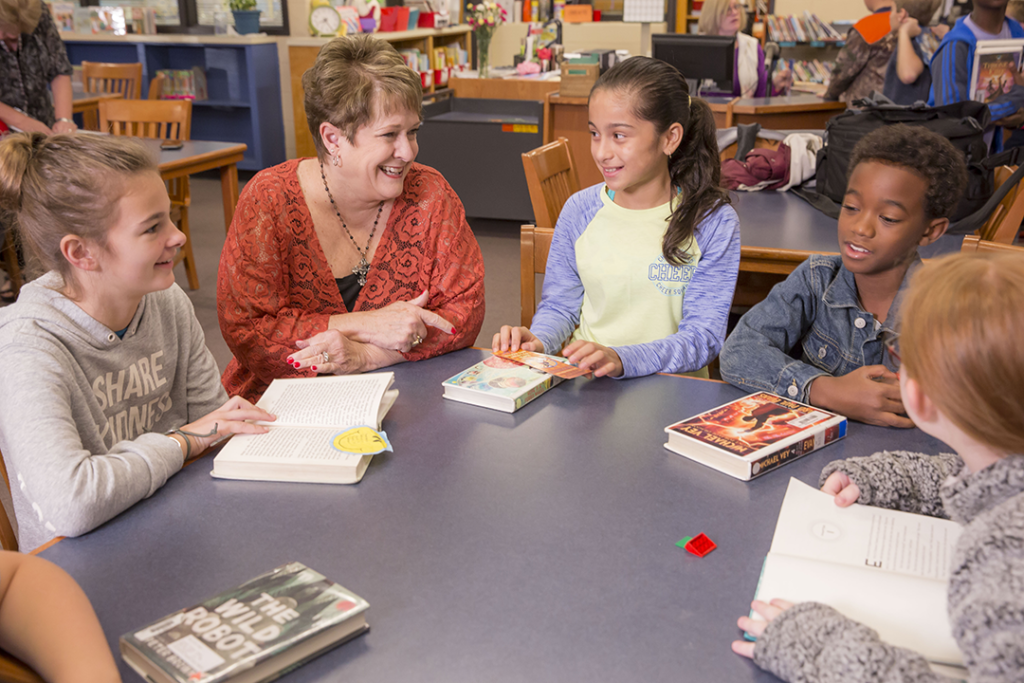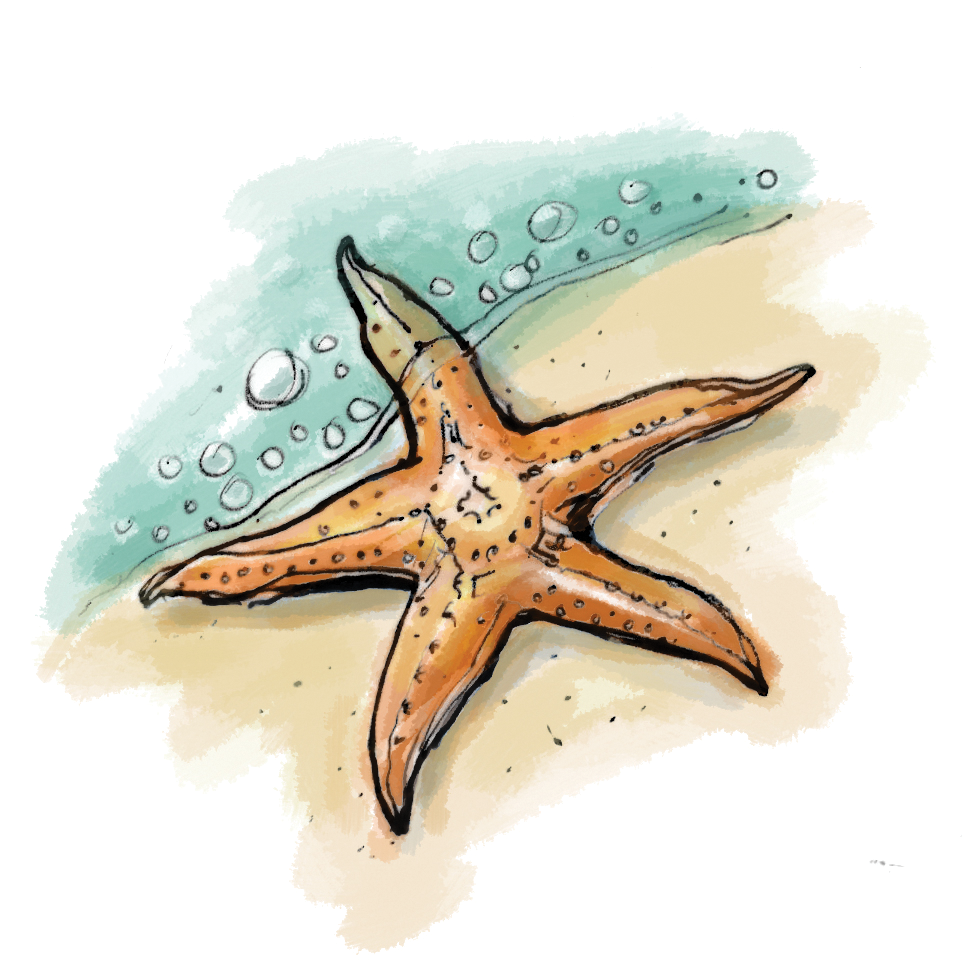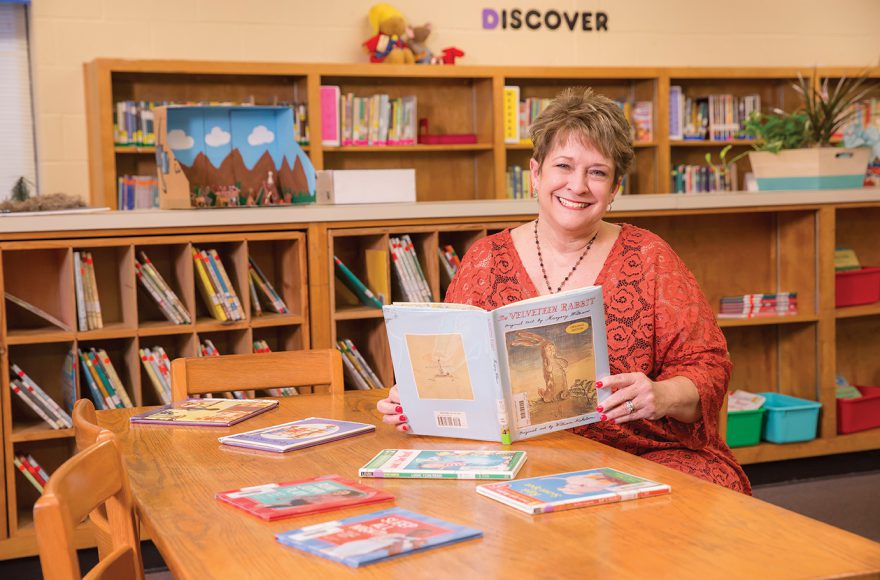Having retired from her post as principal at East Newton Elementary School after nine years, Dr. Kim Street Coady—dental hygienist turned beloved educator—has shifted her focus to the literacy crisis in Georgia and beyond.
A young couple sauntered along a sandy beach. Early morning coffees in hand, they awaited that magical moment when the sun first peeks over and then seemingly rises from the depths of the Atlantic Ocean. As the sky began to glow, they were startled to see the lone figure of a man approaching in the distance. He stopped every few feet, stooped to pick up something and then tossed it far into the sea. Fascinated, the couple watched, even as the sunrise began. The sun’s appearance and the man’s arrival at their vantage point coincided, and the three of them stood, transfixed, by the gorgeous scene.
The young lady spoke first, asking the stranger what it was that he was throwing into the sea. He replied that every morning he scoured the beach for living starfish and returned them to the ocean for a second chance at life. Somewhat miffed, the lady wondered, “With all the starfish out here, how can that possibly make a difference?” The stranger looked down, picked up a struggling critter and held it before them. Tossing it far into the surf, he said, “Well, it makes a really big difference … for that one.”

Dr. Kim Street Coady’s eyes glistened as she referred to the popular Loren Eiseley story “The Star Thrower” in her office at East Newton Elementary School. Her index finger toyed with her necklace, which was adorned with little starfish. It should come as no surprise to find that this purely delightful elementary school principal has been in the business of saving a different kind of starfish for quite a while.
“My husband looked at me one day about 23 years ago and asked if I’d completely lost my mind,” she said. “I had been blessed to serve as a dental hygienist with two wonderful dentists, the late Dr. Johnny Maloney and Dr. Dale Evans. My husband wanted to know why I would leave a three-day-a-week job to take on a career in education, with all the accompanying stress, and for half my salary.”
We have, in Georgia and perhaps nationally, a huge literary crisis. Not only adults, but our teenagers, simply cannot read.
Dr. Kim Street Coady
Coady, it turns out, is rooted firmly in her faith. She had already been teaching in Sunday School at church and was volunteering whenever possible where her two children attended school: Palmer-Stone Elementary in Oxford.
“I just felt, clearly, the call to teach,” she said, still touching the starfish necklace, “and a few days later, my hubby told me to go ahead, as he knew I wouldn’t be happy otherwise.”
So it was that this young mother of two, while still working, started the grinding routine of running her household, volunteering at school, working in her church and driving to Milledgeville, where she earned her teaching certification from Georgia College and State University. In 1995, Coady began teaching second grade at Heard-Mixon Elementary and then filled an assistant principal position at Ficquett Elementary. She also served as a consultant with the Georgia Department of Education, where she became immersed in what continues to be her consuming concern: literacy.

“We have, in Georgia and perhaps nationally, a huge literary crisis,” Coady said. “Not only adults, but our teenagers, simply cannot read. They use electronic devices, can text with both hands, can use modern hieroglyphics, but they cannot read.”
Statistics show that a vast majority of those incarcerated cannot read—a fact which helped lead Coady to the next chapter in her “life after retirement.” Stints as assistant principal at Porterdale Elementary for three years and at Rocky Plains Elementary for a year, combined with her previous experience, prepared Coady for her role as principal at East Newton Elementary. She held the position with distinction for more than nine years. However, as retirement began to loom on the horizon, Coady contemplated just what that next sunrise in her life might reveal. She briefly considered teaching at the college level, but the overwhelming issues found in the literacy crisis moved her to consider establishing her own company.
“I’m a huge advocate for special education, especially the dyslexic population,” Coady said, “so I went back to school at the University of Georgia and have established my tutoring company, which I call ‘Koady’s Connections.’”
Through Koady’s Connections, she hopes to work with teachers on a statewide basis, and perhaps nationally, to inculcate the “Six Pillars of Literacy.”

“If you’ve not been taught the foundational stuff, you simply cannot catch up,” Coady said, “but the world is full of dyslexic people who have enjoyed great success, which shows how tutoring and nurturing can make all the difference.”
Indeed, dyslexic yet successful people who have recorded noteworthy accomplishments include physicist Albert Einstein, actor Billy Bob Thornton and Virgin Group founder Sir Richard Branson—three examples of starfish who needed only a second chance to prove their mettle. Coady plans to save as many as she can throw back into that ocean.
“The numbers are daunting,” she said with a twinkle in her eye, “but for each one I can find, it’ll make a difference … for that one.”
Click here to read more stories by Nat Harwell.




